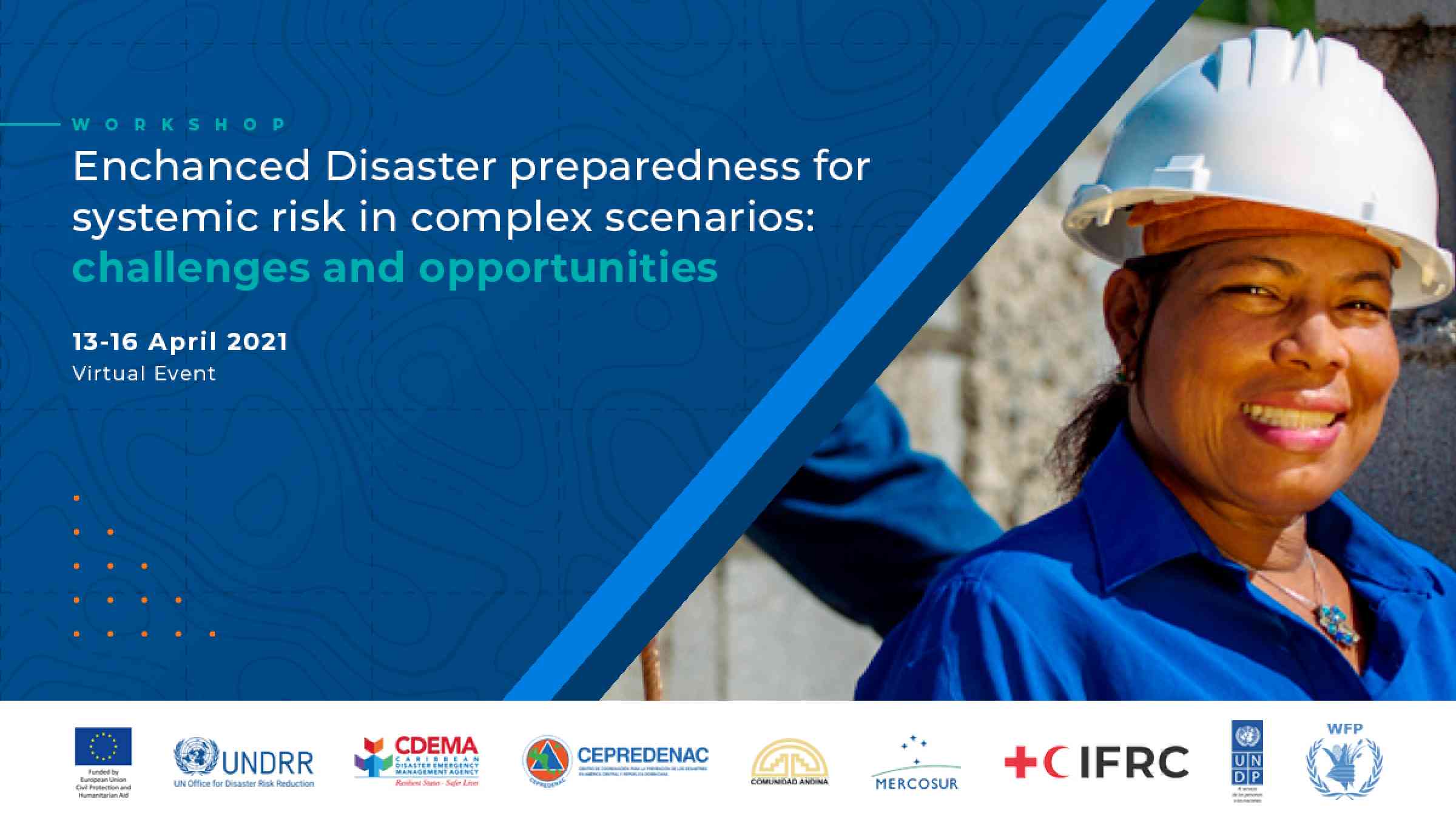UNDRR ROAMC: Workshop - Enhanced Disaster preparedness for systemic risk in complex scenarios: challenges and opportunities

- English
The Directorate-General for European Civil Protection and Humanitarian Aid Operations (ECHO) has been providing assistance to the Latin American and Caribbean (LAC) region since 1994 in fulfilment of its humanitarian mandate to save and preserve lives to reduce disaster risk conditions and contribute to building the resilience of people, communities and countries in the region.
During this time, ECHO, through its Disaster Preparedness Programme (DP), has invested a more than 224 million euros in 34 countries in the region through more than 520 projects, reaching 13 million people in Latin American and the Caribbean, with the participation and involvement of a great diversity of organizations and partners. The disaster preparedness projects supported by ECHO are aligned with the goals defined by the countries of the region (either national or regional) and reinforce the implementation of the Sendai Framework Sendai Framework for Disaster Risk Reduction (2015-2030).
The workshop will focus on presenting evidences on how disaster preparedness has a positive impact on emergency response, anticipatory action and early recovery, contextualised to the different risk situations faced in the region. Evidences may reflect a positive change in practice, the use of new institutionalized tools, or a successful early action that are helping to reduce risks and avoid emergencies or, when such events do occur, contribute to a more effective response or recovery process. The workshop will also provide the opportunity to reflex on challenges and discuss on how to strengthen DP actions to enhance institutional and multisectoral response mechanisms to respond to complex emergencies.
Expected results:
- Assessed impact of ECHO DP actions as well as programmes funded by other donors in the region and identified how DP actions facilitate early action, emergency response and recovery through discussions and provision of inputs and recommendations.
- Evidence-based approach promoted that illustrates how disaster preparedness makes a difference through the presentation of concrete actions and lessons learned, especially in the context of the COVID-19 crisis and complex emergencies in the region.
- Exchange enabled for local, national, regional and international cooperation organizations and their associated partners to share experiences on how DP actions are aligned to national and regional plans and how these are sustainable to respond to future emergencies.
- Recommendations, messages and inputs on how DP interventions contribute to faster and more efficient responses to disasters and how these can influence public policies in the region.
Tools of the first session (April 13th)
- EWS around volcanoes (Asociación Vivamos Mejor)
- Dominican Republic: Food security and resilience to drought
- Cuba: Community Observers (WFP/PNUD)
- México: DRR Committees in Shelters (Save The Children)
- Caribbean: ARISE (UNDRR)
- Central America: Certification of safe/resilient hotels (Trocaire, ACH)
- Colombia: Indigenous Guardians (Federación Luterana Mundial)
- Cuba & Dominican Republic: Protection and inclusion in DRR (Plan Spain; OXFAM; Habitat for Humanity; Humanity and Inclusion)
Tools of the second session (April 14th)
- Technology & data: CEPREDENAC
- México: Quiper Education platform - Quiper (UNICEF)
- Paraguay: Antennae for access to education (Humanity and Inclusion)
- Discussion on opportunities, challenges and added value of working with social protection systems and cash transfer-based aid models: WFP (Ecuador), Acción Contra el Hambre (Guatemala, Honduras, El Salvador y Nicaragua)
- Caribbean: Alignment of regional coordination systems (CDEMA/ OCHA/UNDP/IFRC) Logistics to address response gaps
Tools of the third session (April 15th)
- ACNUR/UNHCR: Migration processes in COVID-19 contexts
- Central America: Protection of Health Workers from Violence (OPS)
- Colombia: CON SENTIDOS (Humanity and Inclusion)
Tools of the fourth session (April 16th)